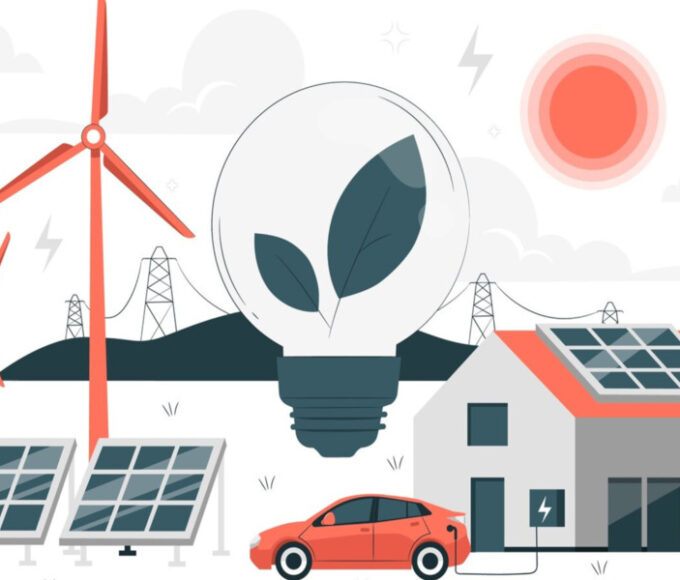Emphasis on Sustainability: A Growing Focus in Business and Consumer Behavior
Sustainability has become a central focus in both business strategies and consumer behavior in 2024, as the growing urgency to address climate change and environmental issues takes center stage. Companies across industries are increasingly prioritizing sustainable practices, from sourcing materials ethically to reducing carbon footprints. At the same time, consumers are becoming more conscientious about their purchasing decisions, favoring brands that align with their values and demonstrate a commitment to environmental responsibility.
The Shift Towards Sustainable Business Practices
Many businesses are integrating sustainability into their core operations as a response to mounting pressure from governments, consumers, and investors. Companies are adopting a wide range of initiatives to reduce their environmental impact, such as using renewable energy sources, cutting waste through recycling and reusing materials, and shifting towards sustainable packaging solutions.
For example, global brands in the fashion and retail sectors are increasingly offering eco-friendly clothing lines made from sustainable materials like organic cotton, hemp, and recycled fabrics. Meanwhile, companies in the tech industry are focusing on reducing e-waste by designing products that are more durable, repairable, and recyclable.
Moreover, businesses are also taking steps to promote ethical sourcing and fair trade, ensuring that their supply chains are free from exploitation and harm to local communities. With consumers demanding transparency, brands are now required to disclose their sustainability practices in order to build trust and loyalty.
Consumers Demand More Sustainability
Sustainability is no longer a niche concern; it has entered the mainstream consciousness. A recent survey showed that over 70% of consumers consider sustainability when making purchasing decisions, and 50% are willing to pay a premium for eco-friendly products. This shift is influencing brands to rethink their product offerings and adopt more environmentally responsible practices to attract eco-conscious shoppers.
Millennials and Gen Z, in particular, are leading the charge in driving demand for sustainable products. These generations are more likely to research brands’ environmental and social practices before making a purchase, preferring businesses that demonstrate a commitment to reducing waste, conserving resources, and supporting sustainable development.
In response, businesses are introducing “green” labels, certifications, and environmental impact reports to assure consumers of their efforts. From plant-based food options to electric vehicles and biodegradable packaging, the demand for sustainable alternatives is evident across various sectors.
The Role of Technology in Sustainability
Technology is playing a pivotal role in helping companies meet their sustainability goals. Innovations in artificial intelligence (AI), machine learning, and data analytics are allowing businesses to optimize their supply chains, reduce energy consumption, and minimize waste. For example, AI-powered solutions can predict demand more accurately, ensuring that companies only produce the goods that are required, reducing overproduction and waste.
Blockchain technology is also gaining traction as a tool for enhancing supply chain transparency, enabling consumers to trace the origins of products and verify that they have been sourced sustainably. Additionally, renewable energy technologies, such as solar and wind power, are being integrated into manufacturing processes to reduce reliance on fossil fuels.
Challenges and the Need for Greater Action
While progress has been made, the path to sustainability remains complex. Many businesses still struggle with implementing sustainable practices at scale due to cost barriers, lack of infrastructure, and the challenge of changing established processes. Additionally, there is growing concern about “greenwashing,” where companies claim to be more sustainable than they actually are in order to appeal to eco-conscious consumers.
To address these issues, businesses must go beyond marketing campaigns and take meaningful, measurable steps towards sustainability. Governments also have a role to play, encouraging businesses to adopt greener practices through regulations, incentives, and partnerships.
Conclusion: A Sustainable Future for Business and Consumers
The emphasis on sustainability is expected to grow even stronger as both businesses and consumers recognize the importance of protecting the planet for future generations. Companies that successfully integrate sustainability into their core operations, demonstrate genuine environmental responsibility, and meet the demands of eco-conscious consumers will be well-positioned to thrive in the future.
As we move forward, it is clear that sustainability will no longer be a mere trend but an essential aspect of business success and consumer choice. The collaboration between businesses, consumers, and governments in pursuing a more sustainable world will be key to building a future where environmental stewardship and economic prosperity go hand in hand.
Visit Latest Interviews
Recent Posts
Related Articles
Why You Should Think About Your Domain Extension Before You Think About The Name?
Think of your domain extension like a surname—it wraps up your web...
ByGlobal Leaders ViewAugust 19, 2025Germany’s ‘Energiewende’ Initiative: A Vision for a Sustainable Future
Germany’s ambitious energy transition, known as the Energiewende, aims to shift the...
ByGlobal Leaders ViewJanuary 27, 2025Global Platform on Sustainable Cities Established
In a groundbreaking move toward addressing the challenges of urbanization and climate...
ByGlobal Leaders ViewJanuary 27, 2025Singapore’s Green Urbanism Initiatives
Singapore, known for its modern skyline and bustling urban environment, is also...
ByGlobal Leaders ViewJanuary 27, 2025













Leave a comment